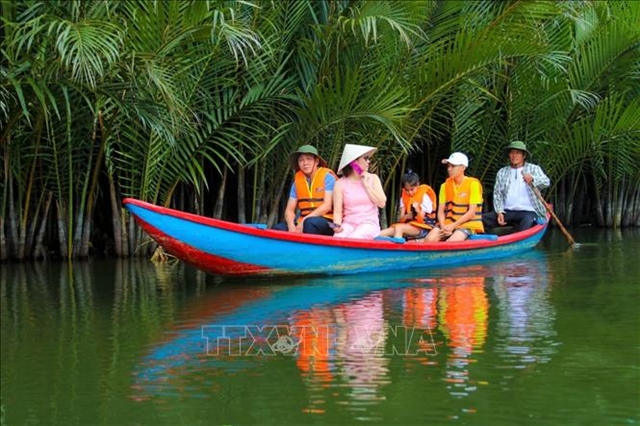 Society
Society

 |
| Việt Nam seeks to improve rural tourism, aiming for more sustainable and effective growth of the overall industry. — VNA/VNS Photo Đinh Hương |
HCM CITY — Vietnamese tourism has been thriving in rural areas, and efforts are being made to encourage this industry to grow sustainably.
This emerging form of tourism has helped localities exploit their existing resources, create jobs, improve incomes for rural people, and protect their ecological landscape.
Rural tourism has also contributed to conserving and promoting regional and ethnic cultures, which attracts investment and improves local economies.
To meet the country's full tourism potential, diverse and special tourist destinations and tourism products have been introduced, with over 400 tourist spots providing agro-tourism, rural tourism, and community-based tourism, said the Việt Nam National Authority of Tourism.
Along with programmes like building new-style rural areas and OCOP (One Commune One Product), Lào Cai, Sơn La, Quảng Nam, Huế, Tiền Giang, Bến Tre, and other provinces have become rural tourism hotspots.
For example, since being named a national intangible cultural heritage last year, the Trà Quế Vegetable Village of Cẩm Hà Commune (Hội An, Quảng Nam Province) has been a must-visit destination for tourists as they can engage in traditional agricultural activities and enjoy dishes made from locally-grown ingredients.
Aiming to improve social awareness of the importance of developing rural tourism in a sustainable direction, the Việt Nam National Authority of Tourism has recently established a webpage (https://nongthon.vietnamtourism.gov.vn) as part of the national programme of developing rural tourism in the 2021-2025 period.
The site helps rural areas capitalise on their strengths in agriculture, culture, ecology, and craft villages, as well as enhance agriculture quality, improve local livelihoods, and bolster overall rural and agricultural tourism.
It also provides information about travel tours, rural tourism products, OCOP, and regional specialties to draw more visitors, thus yielding high economic value for rural tourism.
Visitors to the page can also learn about national and global tourism models, as well as shared experiences on enhancing rural tourism, green tourism, community-based tourism, ecotourism, and applying digital transformation to the field. — VNS




